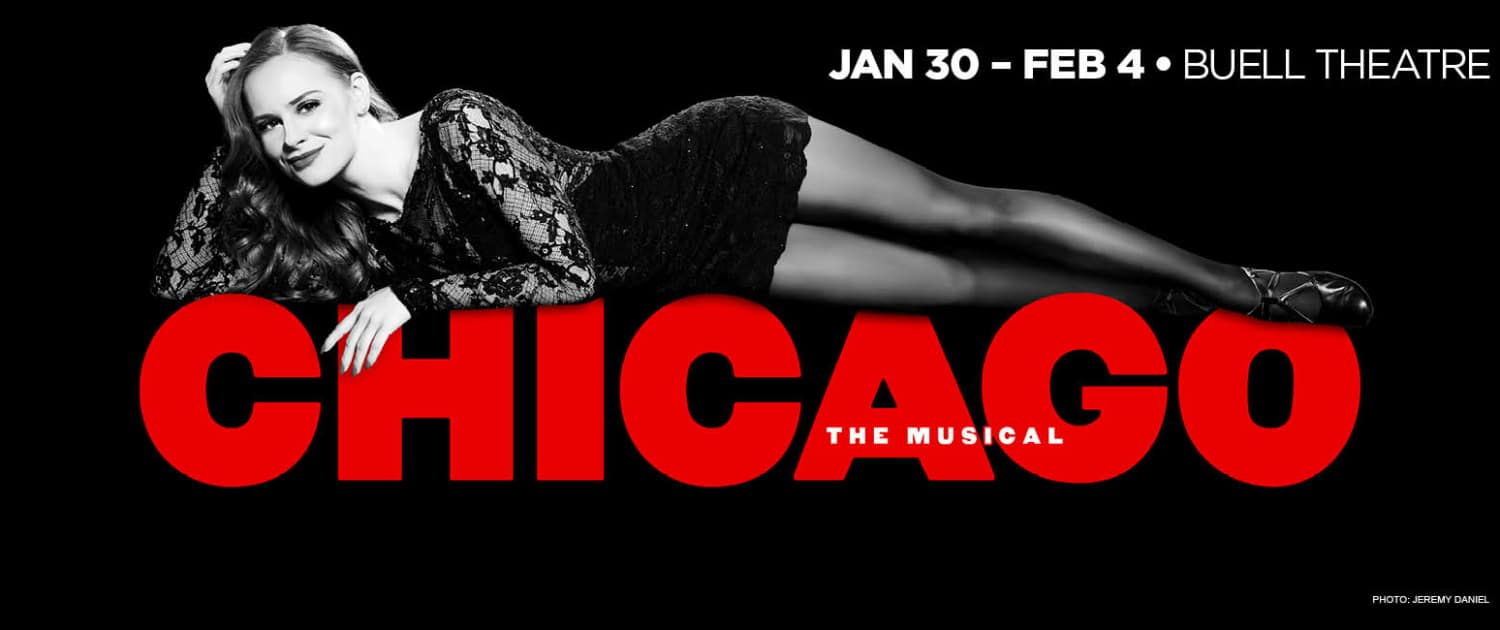DCPA NEWS CENTER
Enjoy the best stories and perspectives from the theatre world today.
Enjoy the best stories and perspectives from the theatre world today.
From the archives: this article was originally published on November 27, 2017

The 1975-76 Broadway season made history. Meryl Streep earned her first Tony Award nomination and Sondheim’s Pacific Overtures premiered on Broadway. And two of musical theatre’s most enduring musicals were created nearly simultaneously.
In the preceding year, while visionary director and choreographer Michael Bennett was developing A Chorus Line, the equally visionary Bob Fosse enlisted composer John Kander and lyricist Fred Ebb (Cabaret) to create a new piece too: the musical version of a 1926 play about an infamous dame who’d killed her husband.
Fosse was an established Broadway director and choreographer at this point (Pippin, Sweet Charity) with a corps of loyal dancers. Denver resident Candy Brown was one of them.
In January 1974, while Brown was dancing in Pippin, she and 18 other dancers gathered to discuss the challenges of being a Broadway gypsy, which eventually became the basis of A Chorus Line. Bennett’s project was an unknown quantity with only the glimmer of becoming something bigger, so some participants defected to more secure gigs, Brown among them. She joined Fosse’s Chicago.
“I felt a loyalty to Bob as Chicago would be my third project with him,” she said. “Not to mention the fact that no one knew if the Bennett workshop would even be a show.”
A year later, Brown arrived for the first day of rehearsal, yet just after lunch, the cast was told that Fosse had been hospitalized. “I went numb,” said Brown. “We all were in a state of disbelief.” Work stopped as Fosse suffered two heart attacks and underwent bypass surgery.
Months later, the Chicago team reassembled and Fosse began to construct his iconic musical.
“Every costume, every gesture, every bit of lighting, every word and moment were all woven together to create the story,” said Brown, who played the role of June.
Chicago opened on Broadway on June 3, 1975, to enthusiastic audience response. Fosse considered it a compliment that some took offense at his cynical take on the American justice system and the cult of celebrity. “Bob was tickled when people walked out,” said Brown, “because he figured that in order to be offended, they must have ‘got it.’ ”
But when the Tony Awards came around, the unconventional A Chorus Line won them all. In his review of Chicago’s 1996 revival, New York Times critic Ben Brantley reflected that the 1975 production of Chicago had been, “in a sense, the evil twin of its rival musical, as acerbic and cold-hearted as the other was sentimental and warm.”
But Chicago would eventually get its due. The 1996 revival was a resounding success, winning six Tonys and a Grammy while Rob Marshall’s film version won the 2002 Academy Award for Best Picture.
Still considered one of Fosse’s towering undertakings, Chicago returns to Denver for a seventh time, and, after 25 years, is the longest-running American musical on Broadway today.
It’s still got that razzle dazzle.
DETAILS
CHICAGO
Jan 30 – Feb 4, 2024 · Buell Theatre
Tickets

Leave a Reply
Want to join the discussion?Feel free to contribute!